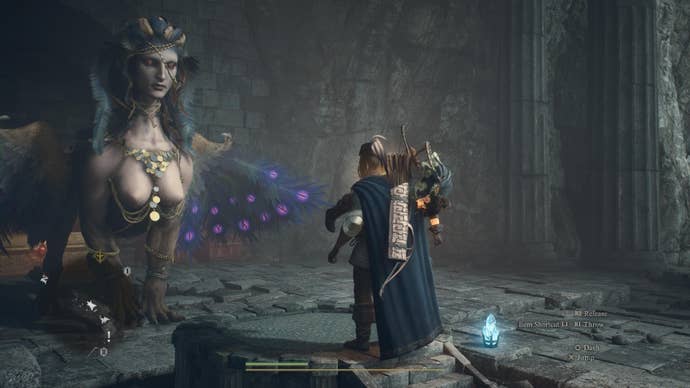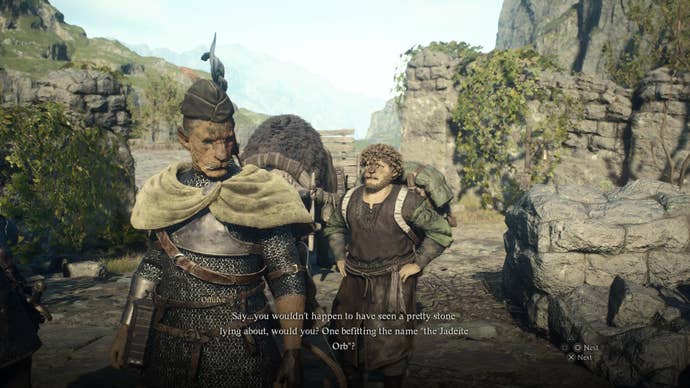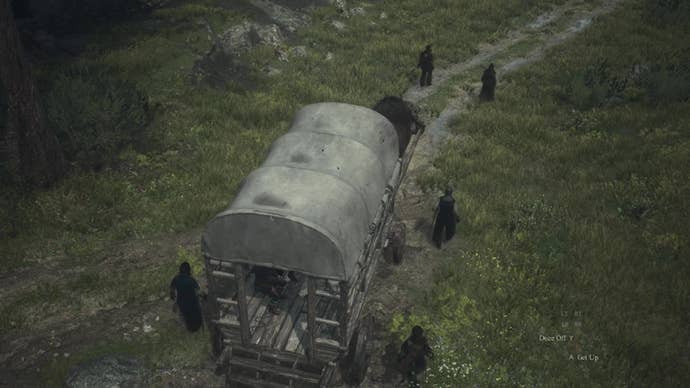Dragon’s Dogma 2 is the kind of game that major publishers no longer make. This divisive project is so thoroughly committed to its part that you’re either in it or out. Even though you may not be excited about every decision you make to make it happen, you have to at least appreciate the passion for it.
Luckily for me, I’m as fascinated by its madness as I am by Itsuno and co. Successfully convinced Capcom to give them the funding and development time they needed to make this happen.
Manage cookie settings
If I wanted to be flippant or reductive, I would say Dragon’s Dogma 2 is a game that doesn’t care about your feelings. Most big games these days are designed to make you the only character that matters until you press a button.The world, its people, and the systems that govern it were created Specifically For your experience. Outside this context, they have no reason to exist and no purpose of their own.
Dragon’s Dogma 2, however, takes a completely different approach.it is still a game, of course; it’s meant to be played, but it wants you to seek out the experience it has. It wants you to fail, to miss content because you didn’t get a subtle hint that a certain NPC you met two hours ago dropped, or even to complete the game without knowing that certain quests and relationships might be completely different. A small More experimental.
This is a game that I hope you find fun, because it’s on the journey that you’ll fall in love with it. My favorite games are those that allow for and anticipate the possibility space of failure. In this sense, failure isn’t something to be avoided, it’s built into the way the designers want you to play them.

Consider this: a polished mini-map, plenty of ways to fast travel, and a detailed quest log. Objectively Useful features. In fact, they’re expected features at the higher end of big-budget games. So why do games like Elden Ring eschew much of that content and still create an engaging open world? In other words, why do games with thousands of lines of dialogue, high-quality voice acting, and expensive cutscenes still fail to create memorable moments or tell stories that stay with you?
Yes, objectively speaking, hiking through the world of Dragon’s Dogma 2 takes longer than Rise of Ronin. Indeed, other methods of speeding up long distances come with their own risks and inconveniences.
Renting an oxcart costs money; they can be ambushed or even crashed if a gryphon happens to land on you and ruin your day. Like most FromSoftware games, it can be frustrating not knowing where to go to find what you need for a mission, or forgetting a key choice you mentioned hours ago because you can’t refresh your memory via the mission log.
All of these are legitimate reasons why many players simply won’t find Dragon’s Dogma 2 “fun” because their expectations are based on the game they play and loose industry standards. But that doesn’t make Capcom’s approach any less effective. In fact, the game’s best moments stem from this chaos and the way you’re forced to interact with the game’s inconvenient systems.
It’s an attitude that indie games do best, which makes it even more surprising and refreshing to see it displayed on a major release like Dragon’s Dogma 2.

Alan Wake 2 was one of my favorite games of last year, but I can never get over how disappointing one of its core mechanics was. You play half of the game as a detective, so it makes sense that you’d have a place to return to after each field mission where you could organize your thoughts and sift through the information you’ve gathered. Detective work relies heavily on connecting dots and examining mundane details.
But Alan Wake 2’s redline board doesn’t give you that feeling, because it boils down to choosing the right photo, observation, or insight and placing it in a predetermined location.only one There is room for everything to sit. It takes away from you the feeling of failure and takes away any power you might have had in causing it.
Shadows of Doubt, another detective game launched last year, comes with its own evidence board. Unless, of course, it makes you make the wrong choice. You still need to collect evidence and do all the detective work, but despite having the “right” evidence, you may end up drawing completely wrong conclusions; despite doing the work. This is why one game can thrive where another fails.
So, yes, key NPCs in Dragon’s Dogma 2 aren’t standing around waiting for you to visit and press A to pick up where you left off. Yes, you will encounter obstacles that seem insurmountable in any way, causing you to come away thinking that you shouldn’t be able to overcome them. Of course, there are moments that feel unfair because the world plays by its own rules.

All of this makes the choices you make in Dragon’s Dogma 2 feel natural. You’ll feel smart when you climb a wall, shoot the weight that keeps a door closed, or fake an item you’re asked to carry instead of actually finding the real thing. Just as it can be frustrating to encounter a flying enemy that you can’t kill because your team has zero ranged options, you can feel extra powerful when you encounter a fully grounded giant.
Dragon’s Dogma 2 is not a toy box; This is an escape room with no attendees and no orientation. If you choose to be locked inside, you’ll need to rely on your wits to find your way out. But once you do, you’ll feel more fulfilled and something you won’t soon forget.